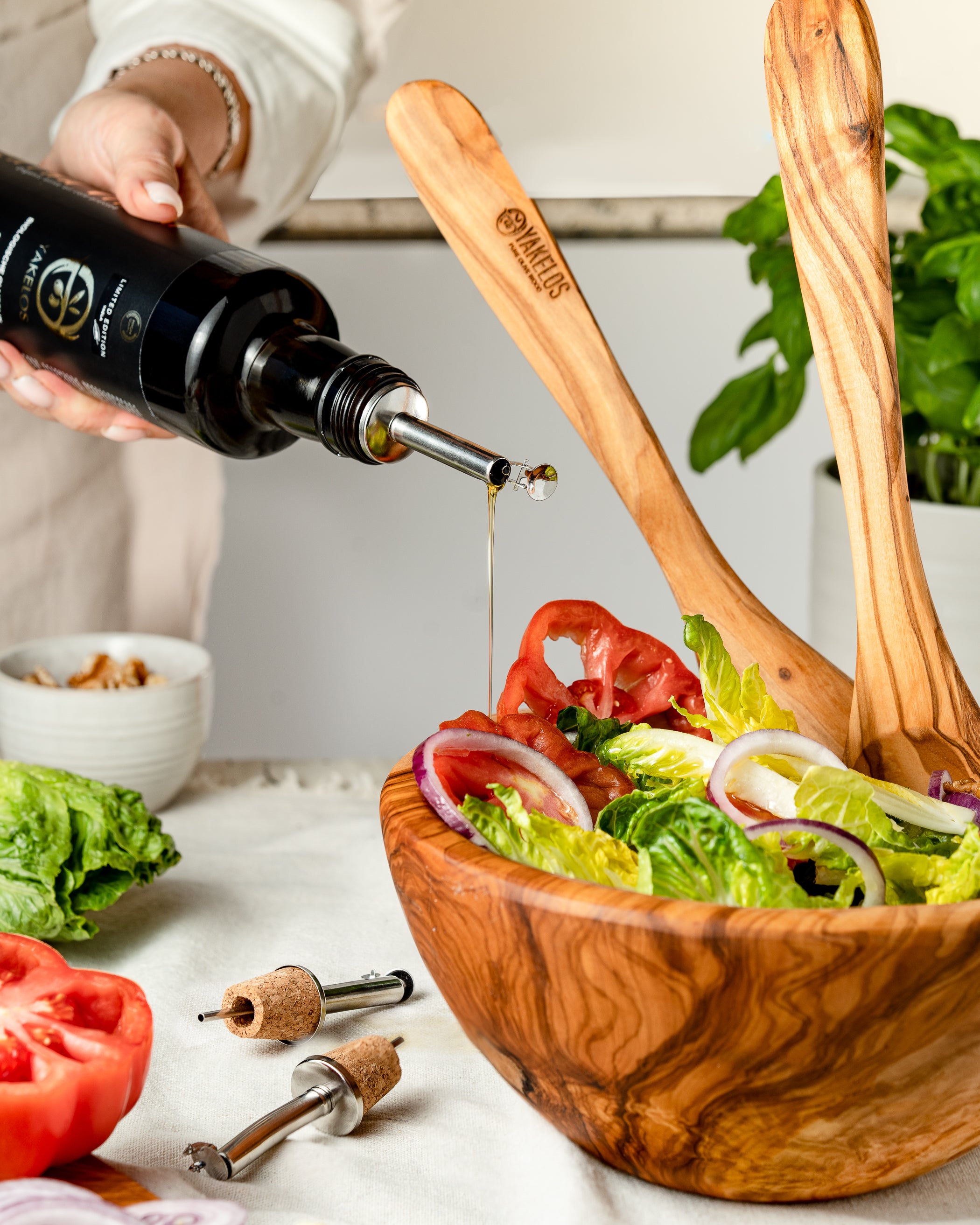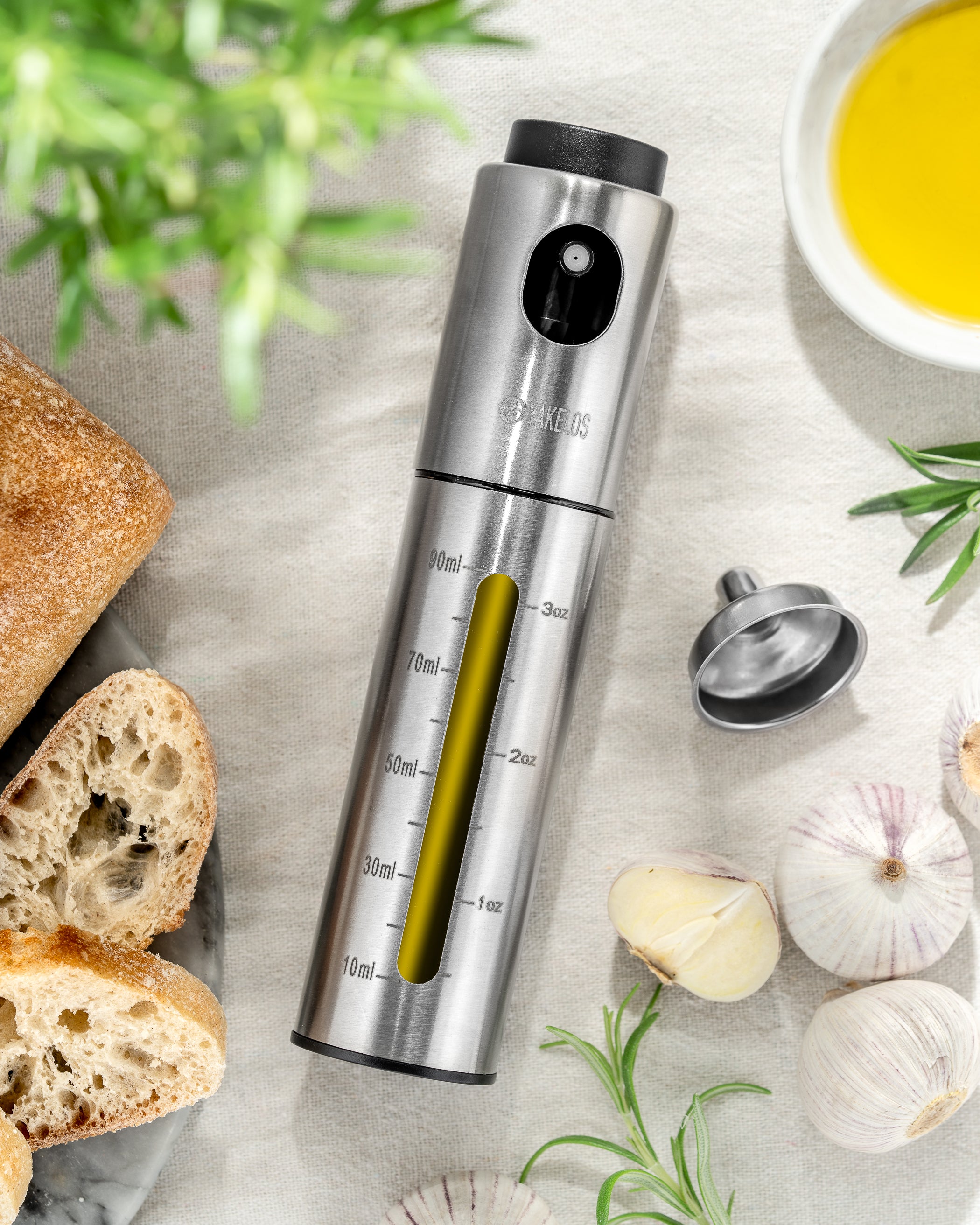And why that doesn't mean it's unhealthy.
Confused by That C on Your Olive Oil?
You’re browsing the supermarket shelf, looking for a healthy option, and you spot it: a bottle of olive oil proudly carrying a NutriScore C. That’s strange—isn’t olive oil supposed to be one of the healthiest choices out there?
You’re not alone in wondering. Let us explain why this score doesn’t tell the full story—and why olive oil remains a smart, nutritious choice.
What Is the NutriScore?
The NutriScore is a food labeling system designed to help consumers make healthier choices. It ranks food products from A (healthiest) to E (least healthy) based on:
-
Calories
-
Sugars
-
Saturated fat
-
Salt
-
Protein
-
Fibre
-
Content of fruit, vegetables, and nuts
More and more food producers are displaying the NutriScore, but the system isn’t perfect—especially when it comes to products like olive oil.
A System with Good Intentions—But Some Flaws
NutriScore aims to nudge both consumers and producers in a healthier direction. For example:
-
Canned vegetables with less added sugar or salt can get better scores
-
Soft drinks with artificial sweeteners instead of sugar can also receive a higher rating
But that doesn’t mean these products are suddenly healthy—many lack essential nutrients or contain questionable ingredients. And unfortunately, this is where olive oil gets caught in the crossfire.
Why Olive Oil Scores Lower
All oils and fats—regardless of quality—are judged heavily on their total fat content. That’s why extra virgin olive oil receives a similar score to much less healthy options like palm oil or coconut oil.
But here’s the catch: the NutriScore doesn’t take into account:
-
The type of fat (e.g. saturated vs. unsaturated)
-
The presence of beneficial compounds like polyphenols
-
Decades of scientific research supporting olive oil’s health benefits
So while the reasoning behind the score may be consistent, the outcome is misleading—especially for a product as naturally nutritious as olive oil.
The Real Health Benefits of Olive Oil
Unlike many processed oils, extra virgin olive oil is:
-
High in heart-healthy unsaturated fats
-
Packed with natural antioxidants and anti-inflammatory compounds
-
Supported by a wealth of scientific studies and part of the Mediterranean diet
Even the official dietary guidelines in many countries—including the Nutrition Centre—recognize olive oil as a healthy, daily fat source.
A Call for Change
Several Southern European countries and the NutriScore Scientific Committee agree: the algorithm needs updating—especially for oils rich in unsaturated fats like olive oil.
If we want consumers to make the healthiest choices, the difference between healthy and unhealthy oils should be more visible and meaningful.
What You Should Remember
Don’t let the NutriScore C fool you. When it comes to cooking oils, olive oil is still one of the best choices you can make—both for flavor and for your health.
At Yakelos, We Believe in Real Quality
We’re proud to offer an olive oil that’s pure, natural, and backed by science. Whether you're dressing a salad, roasting vegetables, or simply dipping fresh bread, you're making a delicious and health-conscious choice—no matter what the label says.




